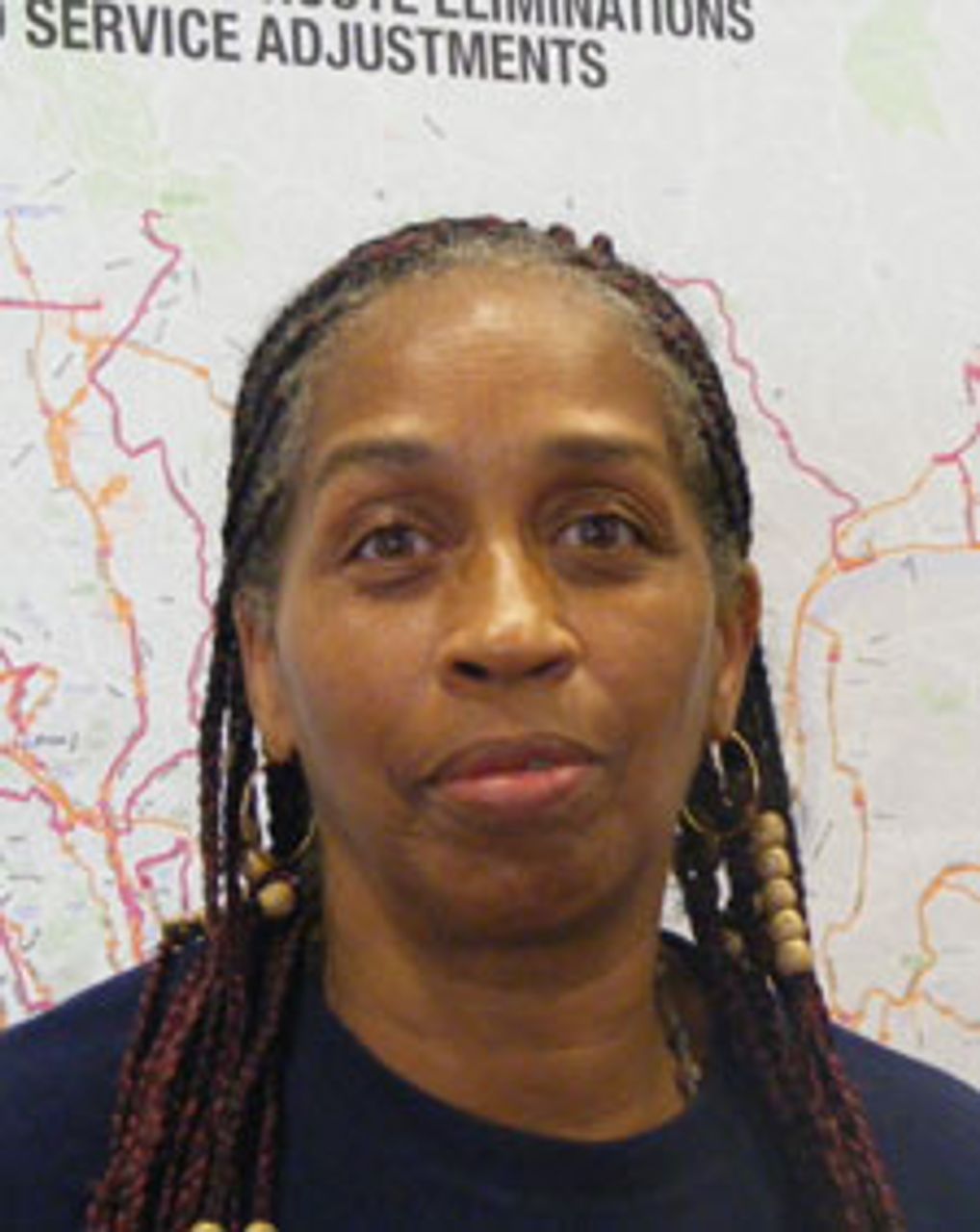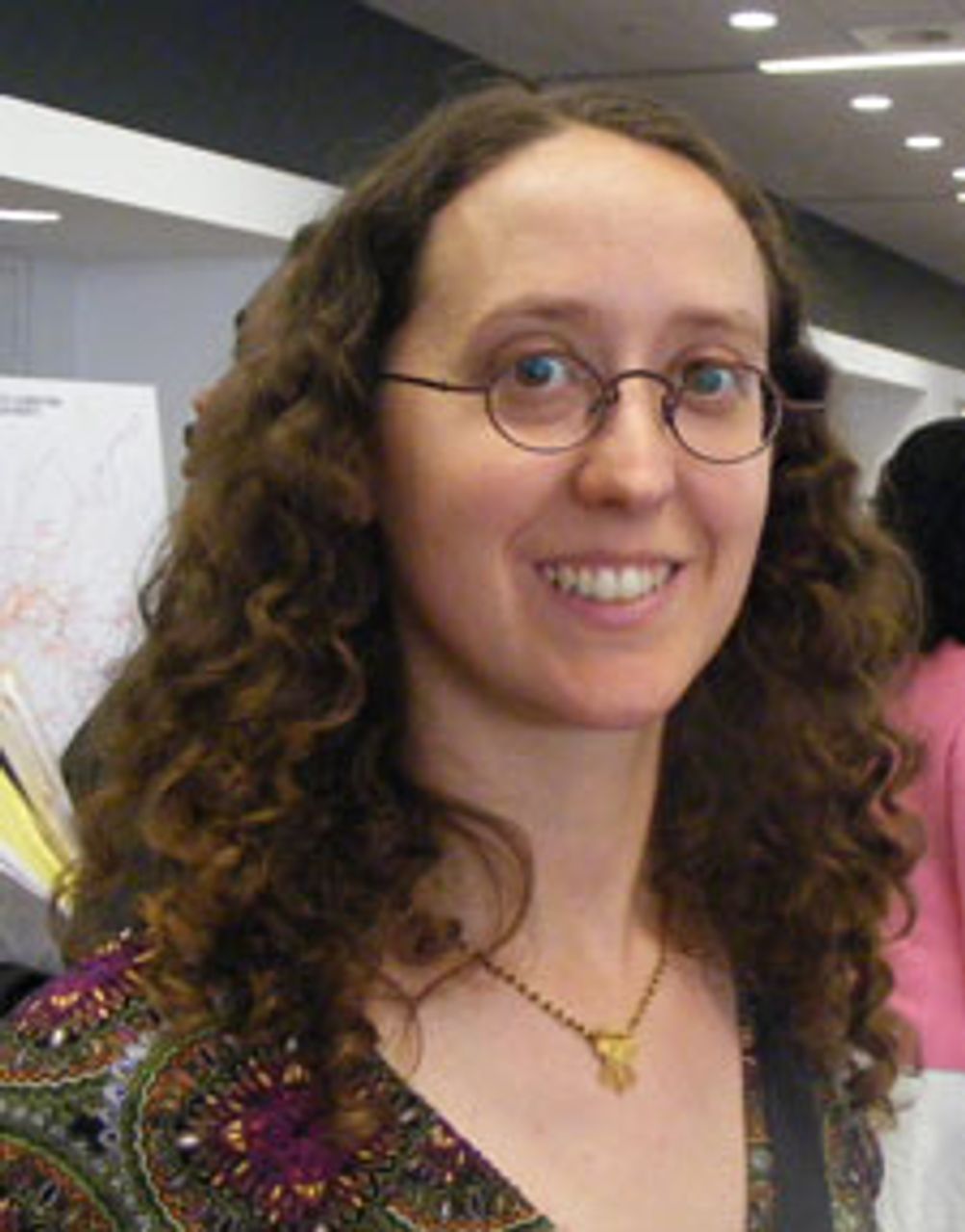The Port Authority of Alleghany County will vote later this month on a series of service cuts and fare increases that will devastate public transportation service in Pittsburgh and surrounding communities.
Starting January 9, the plan calls for a 35 percent reduction in bus and trolley service, including the complete elimination of service to some 54 communities and the elimination of weekend service to about another 35 communities. All routes will see a cut in the number of trips and a reduction in weekend and evening hours. More than 20 percent, 555 of the authority’s 2,700 employees, will lose their jobs.
The additional cuts take place on top of an ongoing reorganization of the transit system under which the port authority concealed additional cuts in service to routes already underutilized due to previous cuts. Taken together, the reorganization and the January cuts will reduce the number of routes from 162 down to just 83.
 Laverne Fisher
Laverne Fisher“People aren’t going to be able to get to work, school, go shopping or to church,” said Laverne Fisher after a daylong hearing that was held last month. “I work two jobs and they cut the two buses I take to get to work, both the 61A and the 68B. One of my jobs is out in Monroeville. There is no other way for me to get to there. I might have to quit my job. People like me have to get to work, we have families to feed, house bills to pay. This hearing is just a formality, they have their minds made up, and they are not going to listen to us.”
Fifty-four communities, including East McKeesport, Glassport, Indiana Township, Liberty, North Versailles, along with the city neighborhoods of Banksville and Spring Garden, will completely lose their bus service. Another 35 communities, including Bridgeville, Edgewood, Garfield Commons, Lincoln-Lemington, Manchester, Pitcairn and Turtle Creek, will lose all weekend service. Another eight communities will lose their Sunday service.
Another 60 communities will suffer “significant service loss,” the transit authority said.
 Dana Siler
Dana Siler“I take the 26E in Robinson to work. That is one of the buses being eliminated,” said Dana Siler. “I will have to walk a mile from my job to catch a bus. “The road is not very pedestrian friendly. There are no sidewalks, and the road is hilly and winding. It will be very dangerous in the winter when it is dark and the road is wet.”
Dana was also concerned about the effect on the environment. “We are trying to reduce our dependence on oil, cutting mass transit is not the way to go.”
Dana was among hundreds of people who attended and testified at the daylong public hearing presided over by the Port Authority board as it goes through the legal motions necessary prior to making the service cuts.
Lucy Spruill, director of public policy and community relations for the United Cerebral Palsy organization, told the hearing that 61 of the agency’s 137 aides “do not drive, do not have automobiles and can only get to the people they serve via buses.” United Cerebral Palsy aides serve about 1,000 disabled people, she said.
On the average weekday, 230,000 riders use public transportation. Last year the authority carried 67 million passengers. A survey of the 140,000 people who work and go to school in the downtown area showed that more than 50 percent ride public transportation at least once a week, and over one third say that they use public transportation every day to get to work or school.
The board is expected to approve the plan when they meet September 24 to vote on it. In addition to the service cuts, the plan includes fare increases across the board. The base fare will increase 25 cents to $2.25 for a zone 1 fare, and a transfer will cost $1.10 extra. Zone 2 fares will increase to $3.00 a ride, and a new $4.00 fare will be charged on what the Port Authority is calling “Premium Services,” which include most light rail lines and many suburban routes.
The Port Authority is claiming that the service cuts are necessary to make up a $47 million budget deficit after state lawmakers refused to approve a committed income for public transit. Transit systems in both Philadelphia and Harrisburg are facing funding cuts as well.
Funding for public transportation has remained flat for the past five years. State lawmakers had hoped to fund public transportation with a $472 million transit bill that was conditioned on winning federal approval to toll Interstate 80. The federal government rejected that request earlier this year.
Governor Ed Rendell refused to address the transit funding shortfall in this year’s budget, instead proposing a special session of the state legislature for this October knowing full well that the lawmakers will enact large cuts in transportation funding.
Three years ago the Port Authority cut routes by 15 percent and two years ago transit workers took cuts in pay and benefits that saved the authority over $50 million a year. However, the promise at the time was that in exchange for the cuts in pay and bus service both the state and county would provide the authority with funds.
Over the course of 2010, the transit authority has been instituting a reorganization of its routes, which has hidden other cuts in service. On Sunday, September 5 another stage in their reorganization went into effect, which eliminates 15 additional routes.
Low-income workers who don’t have their own cars will be especially hurt by the cuts. Many work nights and weekends and live in areas where the service will be cut.
Patty Bella says that she and her family rely upon public transportation for work and school. “Were we live, it is kind of isolated with the railroad tracks cutting through our neighborhood. My husband uses the bus to get to work, and they are cutting the bus that services our neighborhood. Getting to work on Saturday and Sunday has already been a struggle, because they cut bus services on weekends a while ago.
“I am also worried about my son. He has to take the bus to school, and now he will have no way to get to school except to walk and that is very dangerous.”
 Semita Smith
Semita SmithSemita Smith was worried about how this was going to affect people living in poorer communities. “A lot of people are not going to be able to get to jobs,” she said. “When you work a low-income job you are often working evenings, nights or on weekends and those routes are being cut the most. They are the people who need public transportation the most because they don’t have cars. This will lead to more unemployment and more crime.”
Semita herself starts work at 6 a.m. and has to catch a bus by 5 in the morning, a route that is slated to be cut.
Semita was also concerned about the elderly, saying, “Many of the elderly don’t drive. Buses are the only way they have to get to shopping, medical appointments, church and to socialize with their friends. These cuts will leave them more isolated, and that is not good for the elderly.”
